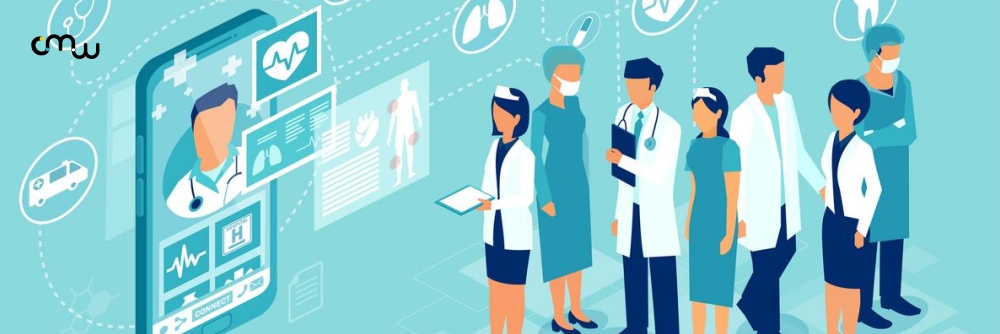Introduction
The healthcare industry is one of the most thriving business industries in the world today. The sector has seen massive growth in recent years, but it still faces many challenges. Even though there are numerous opportunities that have opened up for businesses in this field, they must be able to utilize them effectively if they want to succeed. One way of doing this is by leveraging mobile technology as a marketing tool. In this blog post, we will discuss just how effective mobile technology can be when it comes to healthcare marketing and why you should use it for your business as well!
Marketing in healthcare began to gain a lot of traction in the 21st Century with the advent of mobile technology.
Marketing in healthcare began to gain a lot of traction in the 21st Century with the advent of mobile technology. Mobile devices are increasingly used by patients and healthcare professionals alike, providing an opportunity for marketers to reach their audiences in new ways.
With the rise of value-based care, it's essential for providers to understand how they can use these tools effectively. The healthcare industry is transitioning into an era where quality outcomes matter more than ever before--and mHealth is emerging as one of the strongest and most efficient marketing tools available today.
The benefits of mHealth for healthcare marketers are far-reaching. From providing patient care reminders to assisting patients with managing their chronic illnesses and improving adherence, mobile devices are a powerful tool that can help marketers reach their target audiences in new ways. Beyond the obvious, there's also a growing body of research proving that mHealth apps can improve health outcomes and reduce costs associated with preventable conditions such as diabetes.
As the healthcare industry transitions into an era of value-based care, mHealth is emerging as one of the strongest and most efficient marketing tools available.
As the healthcare industry transitions into an era of value-based care, mHealth is emerging as one of the most vital and efficient marketing tools available. In fact, it's a great way to reach out to people who aren't looking for your services--and may not even know they need them.
As a cost-effective marketing tool that allows you to connect with customers in real time and provide real value on their terms, mHealth is poised to become even more potent in its ability to help you grow your business and improve patient outcomes across all stages of treatment or recovery.
The technology is already being used by a range of health-related organizations and providers, including hospitals, clinics, pharmacies, medical device manufacturers, and more. Studies show that mHealth can be especially effective when it comes to patient engagement and adherence. However, as we’ve seen in other industries where mobile technology has been implemented, there are still some significant obstacles to overcome if you want to take advantage of this powerful tool.
Marketing has always been an essential part of every business. You need to reach out to consumers and let them know what you have to offer so that they can try it out themselves.
Marketing is an essential part of every business. You need to reach out to consumers and let them know what you have to offer so that they can try it out themselves. Marketing helps you reach more people, which in turn leads to more sales for your business. Marketing also has other benefits, such as improving your brand image and saving money on advertising costs.
Marketing can be done in many ways, but one of the most effective methods is to advertise. You can do this through social media or traditional media such as television and newspapers. However, you may not have the budget for this type of advertising.
With the rise of the internet, many businesses have turned to online marketing as an alternative. The internet is a powerful tool, and you can use it to get your message out there. You don’t need a large budget or expert skills to do so; all you need is some basic knowledge of how the internet works.
If a hospital or a health institution is not marketed well, then it will eventually fade into oblivion, and people will definitely avoid taking their services.
Marketing is a process through which a company builds its brand identity, creates awareness about its products and services, builds customer loyalty, and helps in retaining them. It also helps in acquiring new customers by creating brand awareness among them. In other words, marketing plays an essential role in improving the business performance of any company.
One of the best ways to achieve this goal is by using mobile technology, as it has become an integral part of our lives today. Mobile apps have become an effective tool for marketers because they offer many benefits over traditional methods like print advertisements or TV commercials, such as increased ROI (return on investment), reduced cost per acquisition, etc.
With the help of mobile technology and smartphones, many healthcare providers are now able to connect with their potential customers at the right time and at the right place.
Mobile technology can help healthcare providers reach their potential customers at the right time and at the right place. This is a great way to connect with your customers, as they will be able to see your advertisement in their smartphone's news feed, which makes it more likely that they will see it.
Mobile technology is a great way to reach your customers because it allows you to connect with them at any time. This can be especially helpful if your business is open late or on the weekends, as you will be able to reach people who may not otherwise be able to visit your brick-and-mortar store.
The role of mobile technology in healthcare marketing cannot be stressed enough.
Mobile technology is a great way to reach out to potential customers. In fact, it's the most cost-effective way you can communicate with them on the go and get feedback from them.
Mobile marketing has become more popular because of its ease of use and accessibility. You can send out text messages, emails, or even make phone calls using your mobile phone without having any technical knowledge at all! Mobile devices are also cheaper than computers or laptops, so they're incredibly affordable for small businesses like yours who want something that's easy but still effective in reaching out to their customers.
Conclusion
The role of mobile technology in healthcare marketing cannot be stressed enough. The ability to reach out to consumers at the right time and place is crucial for any business, but especially so in an industry where lives are on the line. Marketing should always be considered an essential part of every health institution's strategy because it helps them build their brand image and connect with potential customers who might need their services someday soon!






